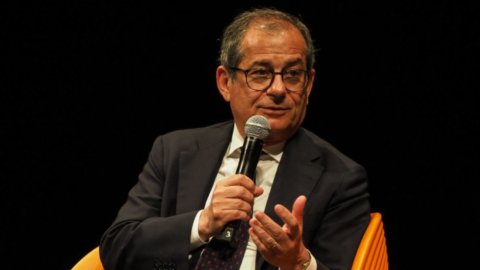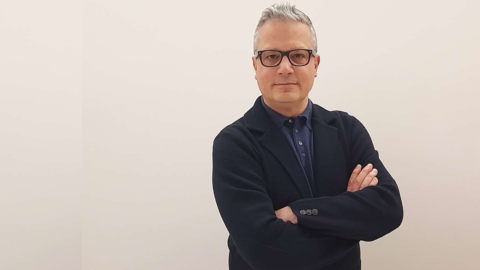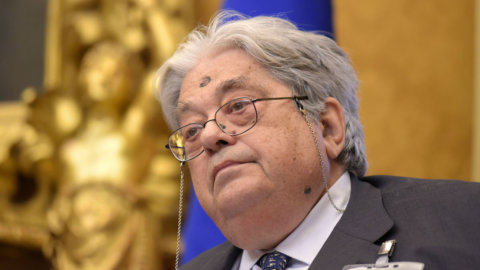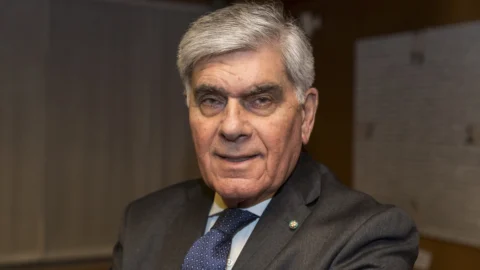Molti dei saperi disciplinari che abbiamo ereditato – e che usiamo – non godono più di buona salute. Si tende a pensare che siano ormai irrilevanti, soprattutto per le loro modeste capacità interpretative e previsionali. Molti dei fatti che avvengono, in campo economico e sociale, sorprendono sempre più spesso anche gli addetti ai lavori. Della reputazione degli economisti si era discusso già durante la grande crisi del 1929, discussioni che sono riprese ogni volta che questi si sono mostrati incapaci di prevedere crisi e di indicare i modi per venirne fuori. Le stesse discussioni hanno coinvolto gli scienziati sociali a più riprese negli ultimi anni. Come osserva Ilvo Diamanti, con riferimento agli scienziati politici, questo accade “perché gli specialisti e i professionisti e gli stessi opinionisti tendono a confinare ‘fuori’ dalla politica la dimensione micro-sociale”. Insieme a concetti come ‘vita sociale’ e ‘senso comune’ (…) che interpretano la realtà sociale come una costruzione cognitiva”.
Anche gli altri saperi, a cominciare dall’economia, si sono infatti definiti lasciando fuori dimensioni che in realtà devono essere considerate attentamente, se ci si vuole misurarsi con i grandi problemi che le nostre società devono affrontare. Nel dibattito sull’Europa che si svolge nel nostro paese tante delle posizioni e delle analisi sono influenzate da “false verità”, e bene ha fatto Lorenzo Bini Smaghi a scrivere un libro che prova a chiarire in che misura molte delle opinioni diffuse tra la gente – e sostenute da commentatori e da politici autorevoli – hanno un fondamento discutibile, esprimendo spesso solo “ senso comune”.
Non sempre, come ben sapeva Alessandro Manzoni, il senso comune e il buon senso sono in sintonia. Tutti ricordano le frasi dello scrittore italiano, frasi che sono state riprese da Ilvo Diamanti, Gramsci, Manzoni e mia suocera (Il Mulino), e che meritano di essere riprese qui. Sul ruolo rilevante degli untori nella diffusione della peste a Milano – segnalava lo scrittore italiano, nei Promessi sposi – non mancavano dubbi tra la gente, e tuttavia queste persone non facevano emergere il loro dissenso “dall’opinione volgare”. Quest’ultima era troppo diffusa e chi aveva un’opinione diversa difficilmente la manifestava.
“Il buon senso c’era – scrive Manzoni – ma se ne stava nascosto per paura del senso comune”. Con riferimento alle questioni europee, va osservato che la situazione appare abbastanza simile a quella descritta dal Manzoni, ed è stato utile lo sforzo fatto da Bini Smaghi per chiarire quante delle opinioni più diffuse e quindi più condivise siano in realtà bisognose di rettifiche, essendo delle false verità. Bini Smaghi individua ben 33 opinioni che ritiene essere delle false verità e prova a fare chiarezza su di esse, introducendo informazioni, dati e ragionamenti che possano incoraggiare il buon senso delle persone a farvi vivo. Il suo è uno sforzo per avete discussioni meglio informate su questi temi. Naturalmente sappiamo tutti che, a dividere le persone che discutono, un ruolo importante lo giocano gli interesse e poi il fatto che pochi sono capaci di mutare il loro punto di vista, senza sentirsi diminuiti.
In molte situazioni– e questo vale certamente nel nostro caso – appare più semplice pensare che le difficoltà italiane dipendano dalle scelta fatte da altri paesi e che noi non abbiamo nulla da rimproverarci. Naturalmente nella crisi – sia dell’Unione che del nostro paese – quasi nessuno dei vari attori è privo di colpe, e tuttavia bisogna sempre fare una analisi equilibrata, come propone Bini Smagni nel suo libro . Scaricare la colpa delle difficoltà dell’Italia sull’Euro e sull’Europa o sulla Globalizzazione va considerato un esercizio fondato largamente sul senso comune e non sul buon senso. Ad alimentare il primo contribuiscono tanti fattori, anche il fatto che tanti argomentano utilizzando in modo disinvolto frasi che prescindono dal contesto nel quale sono state scritte. Bini Smagni osserva – per esempio – che molte delle critiche autorevoli che sono state svolte contro l’Euro da autorevoli economisti come Joseph Stiglitz o Paul Krugman, in realtà “vengono spesso avanzate non per proporre la fine dell’euro o l’uscita di qualche paese, ma semmai per chiedere un più veloce rafforzamento dell’unione monetaria con l’Unione politica e il completamento dell’unione economica – esattamente l’opposto di chi chiede la fine dell’euro”. Anche Nouriel Roubini in un suo recente saggio, ha scritto che “l’unione monetaria rimane in uno equilibrio instabile: o l’area dell’euro si muove verso una piena integrazione (inquadrata in una unione politica per dare legittimità democratica alla perdita di sovranità nazionale sulle questioni bancarie, fiscali ed economiche) oppure subirà un processo di disunione, disintegrazione, frammentazione ed eventualmente di rottura”.
Il senso comune è inoltre alimentato ad arte non solo da citazioni parziali, ma da traduzioni infedeli, com’è avvenuto con un brano dell’economista cipriota Cristopher Pisarrides. Questi – ricorda Bini Smaghi – è intervenuto sostenendo non la necessità della fine dell’euro ma che ci si trovava di fronte ad una scelta radicale: “O i paesi che guidano l’euro si attivano al più presto per rendere l’euro un fattore di promozione della crescita e dell’occupazione oppure l’euro deve essere disciolto in modo ordinato”.
Tutta l’impresa della costruzione dell’Europa, come ben sapevano coloro che l’avevano iniziata e come ha ripetuto con insistenza nei suoi scritti Tommaso Padoan-Schioppa – un testimone e protagonista di questa impresa – ha avuto questo carattere per la semplice ragione che si proponeva di realizzare un obiettivo che non aveva precedenti storici, spingendo gli europei ad avventurarsi su terreni poco esplorati. Anche l’avventura dell’euro ha questo carattere, essendo ” la prima moneta sciolta non soltanto dall’ancoraggio all’oro ma anche dal suo ancoraggio alla Stato”3.
Sul terreno monetario l’euro, creato nel gennaio del 1999, è stato un atto messo in campo per superare un paradigma in uso che era fonte di guai. Con questa decisione si era preso atto che il libero commercio, la mobilità dei capitali, i cambi fissi e l’autonomia delle politiche monetarie non riescono a conciliarsi tra di loro e si è creata una moneta per abbandonare il paradigma del “quartetto inconciliabile” e per superare la egemonia del marco. Su tutte queste questioni torna Romano Prodi – nella sua intervista che apre l’ultimo fascicolo di Limes e che si intitola Perché l’Europa e l’Italia non funzionano più, chiarendo che “l’Euro non è, come si dice comunemente un progetto dei banchieri.
‘E la più innovativa idea politica dopo la fondazione dell’Unione Europea: la grande e irreversibile decisione di unire gli europei in una sola entità politica a partire dalla moneta.(…) Sin da allora era evidente la necessità di accompagnare la moneta unica con altre decisioni fiscali ed economiche. (…) Il processo era concepito come irreversibile e doveva conseguire una completa integrazione economica, non solo monetaria”. Per Prodi “la valuta comune non era una scorciatoia ma il progetto più realistico che si potesse intraprendere” in quel momento.Se il primo sistema era da considerarsi imperfetto, lo era anche il nuovo, come ricorda Prodi, e vi era consapevolezza di questo.
La crisi ha mostrato ampiamente che – ripete in modo insistito il presidente della Banca Centrale Europea Mario Draghi – la Unione, per uscire dalla crisi, ha bisogno di usare tutti gli strumenti che hanno gli Stati ovvero quelli di bilancio, strutturali, monetari e fiscali. Cose che non vengono fatti poiché mancano la volontà e gli strumenti comunitari. La crisi naturalmente qualcosa di positivo l’ha svolto, spingendo in avanti il processo di costruzione di una nuova architettura istituzionale europea in grado di rispondere meglio ai bisogni di governo dei processi in atto, ma so tratto di un percorso ancora modesto, rispetto alle necessità. Va inoltre ricordato che è mancata un’azione a sostegno della domanda da parte di quei paesi che, come la Germania, erano e sono in grado di farlo.
Non avendo modelli di riferimento e mappe utili da usare, sono stati commessi errori gravi, e a rendere poi più drammatica la situazione ha contribuito certamente la grave crisi che ha colpito l’economia mondiale, e in particolare i paesi avanzati. Una crisi questa, che non è stata certo prevista dagli osservatori e dai centri di ricerca.
Questa incomprensione della portata della crisi ha reso molto costosi tutti gli errori fatti e particolarmente ingenti sono stati i costi determinati dal ritardo con cui si è intervenuto. Questi ultimi potevano invece minore minori, se l’Unione fosse stata capace d’interventi più tempestivi e se avesse mantenuto una visione lungimirante.Tra costi non economici avuti vi è la crescita nell’arena politica europea di partiti e movimenti anti-euro e anti-Unione. Senza ovviamente trascurare che, anche all’interno partiti tradizionali, sono cresciuti posizioni di questo tipo. Questo mutato atteggiamento trova conferma nelle indagini periodiche che sono svolte e pubblicate dall’Eurobarometro sugli orientamenti europei esistenti nei singoli Stati.
Una lettura comparata di queste indagini periodiche segnala, infatti, che negli ultimi anni, a partire dal 2008, la fiducia degli europei nell’Unione sia in rapida discesa, e che oggi solo in sette dei paesi dell’Unione la maggioranza dei cittadini continua ad avere fiducia nell’Unione. Naturalmente pure la fiducia nell’Euro si è ridotta in modo significativo, e lo stesso sta accadendo con riferimento alle principali istituzioni europee. La caduta della fiducia dei cittadini europei nell’Unione è un fatto grave ed è particolarmente pericoloso quando investe l’euro e la Banca Centrale. Nessuna moneta e nessuna banca possono svolgere bene il loro ruolo, se non hanno la fiducia dei cittadini, dei consumatori e degli investitori che sono nell’arena economica europea e in quella internazionale.
Tutti i sistemi sociali per funzionare hanno bisogno di questo” lubrificante”, per riprendere un termine usato da Arrow, uno studioso molto convinto dei grandi vantaggi economici, politici che si hanno dall’esistenza della fiducia o quando si riesce a ripristinarla, se è venuta meno8.Il prevalere della “veduta corta” in Europai sta determinando dunque una crisi che, partendo dall’economia, si sta ripercuotendo anche sulla politica, una crisi che ha origini non solo economiche ma culturali. Si è creata “una trappola” (per dirla con Gianfranco Viesti), si è creato un meccanismo perverso, circolare e cumulativo – per riprendere invece una categoria cara a Gunnar Mirdal e che forse aiuta meglio a comprendere quello che accade e i modi per uscirne- che deprime la economia poiché rinuncia ad utilizzare tutto il potenziale economico che esiste nell’Unione, mettendo contemporaneamente in discussione il complicato e faticoso processo di costruzione avviato e gli equilibri sociali che esistono nei diversi paesi.Uscire da una trappola o da un meccanismo circolare cumulativo è sempre difficile, soprattutto quando vi sono alcuni paesi (in particolare la Germania) che continuano a guadagnare da questa situazione (anche se gli ultimi dati dicono che questi si vanno riducendo) e quando nella partita un ruolo importante l’ hanno le differenze culturali che esistono tra i vari paesi. A rendere complicato l’avvio di strategie capaci rompere questo circolo vizioso vi è il fatto che esiste un senso comune diffuso e che impedisci a tanto di mettere in campo il loro buon senso. Il senso comune che domina spinge invece ad accettare false verità e bugie collettive, messi in campo da quanti hanno interessi da tutelare, come è il caso della Germania. Si tratta dunque di combattere contro interessi corposi ma un senso comune che alimenta un conformismo politico e la “spirale del silenzio” che esiste in molti luoghi.
Il dibattito su come salvare l’Europa è naturalmente ampio, e le strategie suggerite sono davvero tante e non possiamo certo riprenderle o riassumerle in questa sede, avendo bisogno di uno spazio che non è disponibile in questa sede. Conviene rimandare ai tanti libri e studi in circolazione, suggerendo tuttavia che sono da avvantaggiare quelle analisi che escono dai loro confini disciplinari e che sono attenti ai processi circolari e cumulativi che si creano sempre e soprattutto quando si tenta di battere piste sconosciute. La costruzione dell’Europa ha richiesto e continua a richiedere dei gruppi dirigenti che siano capaci di gestire in positivo gli squilibri inevitabili che si creano sul campo economico e politico. In questi percorsi sono infatti soprattutto gli squilibri che possono fungere da combustibile per vincere le resistenze e le forze inerziali che esistono.
In passato questo è accaduto, racconta la storia dell’Unione, ma questo non significata per niente che accadrà sempre e quindi di nuovo. Dalla trappola in cui è impigliata l’Unione europea si esce solo ricreando un clima di fiducia, un lubrificante questo che si ottiene solo quando si riesce superare visioni corte e sguardi miopi, come invitava a vare Padoa- Schioppa. Una maggiore limpidezza nello sguardo si avrà solo quando si ridurrà lo spazio per le false verità e le tante bugie che sono in circolazione e che impediscono di vedere che la responsabili delle attuali difficoltà è collettiva.
La Germania non dovrebbe ambire a creare un’Europa tedesca, e non solo per i costi altissimi che questo progetto ha per i paesi più deboli, ma per quelli che si determinano nell’arena politica europea. L’invito fatto da Angelo Bolaffi ai tedeschi ad usare la loro egemonia in modo saggio e lungimirante merita di trovare ascolto in quel paese, come va pure accolto l’invito fatto da Bini Smaghi alla opinione pubblica italiana di non credere alle tante false verità che sono in giro e a fare le cose che servono per contare di nuovo e di più nel processo decisionale europeo. In definitiva i nuovi scenari dell’Europa e della sua moneta dipenderanno dalla capacità dei popoli e dei governi nazionali di ricreare un clima di fiducia che porti a lavorare per aumentare l’integrazione e la cooperazione tra i paesi e le istituzioni europee.
Bisognerebbe non rassegnarsi e affrontare con coraggio la situazione, sapendo che ogni ritorno al passato è impossibile, dati i processi di globalizzazione e le nuove divisioni del lavoro che si sono create nel mondo.
Anche sul terreno della politica, le dimensioni nazionali sono diventate ormai del tutto anacronistiche rispetto ai problemi che si devono affrontare.





